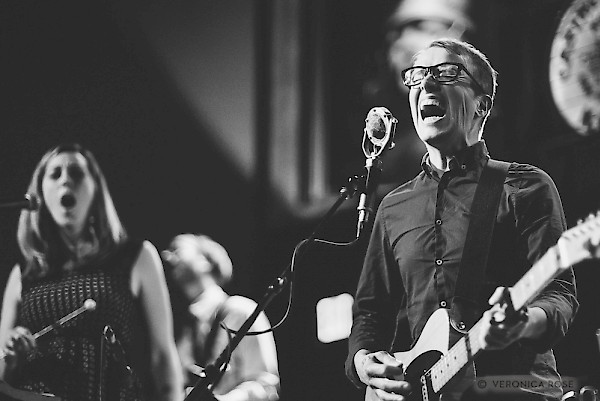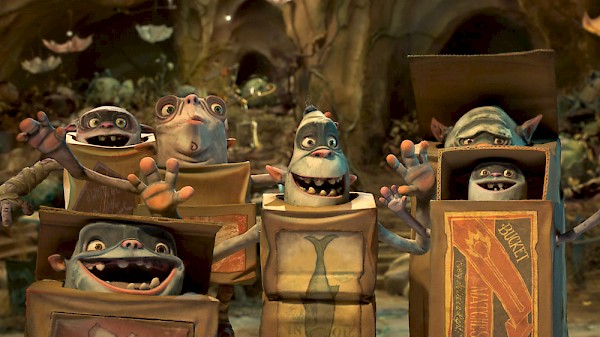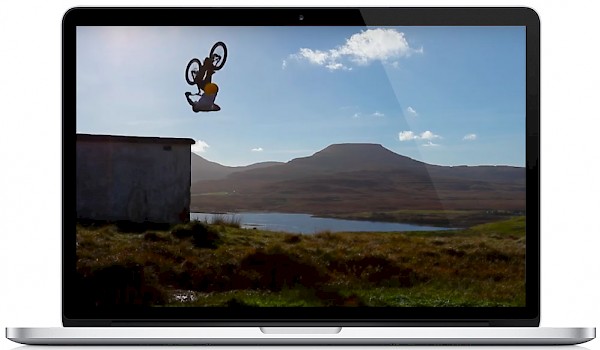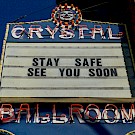 Ritchie Young of Loch Lomond at Mississippi Studios in 2015—click to see more photos by Veronica Rose“We would not have a career over in Europe if it were not for a bicycle dude,” Ritchie Young of Loch Lomond tells. Years ago, the Portland-based baroque pop band received an email from a filmmaker requesting to use their song in a video starring trick rider Danny MacAskill. Today, that Red Bull-sponsored video has almost 40 million views on YouTube—watch the incredible video at the end of this article.
Ritchie Young of Loch Lomond at Mississippi Studios in 2015—click to see more photos by Veronica Rose“We would not have a career over in Europe if it were not for a bicycle dude,” Ritchie Young of Loch Lomond tells. Years ago, the Portland-based baroque pop band received an email from a filmmaker requesting to use their song in a video starring trick rider Danny MacAskill. Today, that Red Bull-sponsored video has almost 40 million views on YouTube—watch the incredible video at the end of this article.
“And people still come to our shows over there and reference that,” Young says. Fans discovered Loch Lomond’s music via a viral internet video, and they still tell him: “‘We love your music because we listened to that song and we bought your records and we’re coming to the show’—and we would have had none of that without someone emailing us, ‘Can we put your music in a bicycle thing?’”
Yet, the music industry can be “dizzying highs and desperate lows,” as Young so eloquently puts it. And having this same experience once, yet alone at all, “It’s like the lottery,” he says. You cannot plan recording sessions or tours around hoped-for licensing income. But it is possible to set yourself up for opportunities—and this is where a music licensing agency can be your best friend.
 Ritchie Young and Loch Lomond contributed four songs to the soundtrack of the Academy Award-nominated animated film ‘The Boxtrolls,’ which “was a huge education to work on that level,” he says. “Working with them was much more complicated and made me a better musician and a writer because of the extremely challenging rules they would throw at us. Which was fun—tons of fun.”But first things first: What is music licensing?
Ritchie Young and Loch Lomond contributed four songs to the soundtrack of the Academy Award-nominated animated film ‘The Boxtrolls,’ which “was a huge education to work on that level,” he says. “Working with them was much more complicated and made me a better musician and a writer because of the extremely challenging rules they would throw at us. Which was fun—tons of fun.”But first things first: What is music licensing?
“Clients come to me and ask me for a specific type of music. I look through the roster of artists that I work with for something that matches. I pitch music to the them. Hopefully they like it and would eventually license it and pay out the band to use the track,” explains Kat Olsen, senior music supervisor at Marmoset.
Olsen, an artist herself, guides and advises musicians. She advocates on their behalf and prepares them for success. She also offers a warning: “Some of the best artists I know do not work well for licensing. Music is so subjective with ads. So never take it to heart if someone doesn’t want your licensing for their campaign.”
There are two things you can do to be prepared for a licensing deal: have instrumentals of your songs (and better yet, stems—or the open sessions of individual instruments), and be ready to act.
Loch Lomond missed an opportunity to license a track because they did not have an instrumental version. “Now, we’re completely prepared to move within minutes,” Young says.
Getting connected with the right agency can be very advantageous, opening doors to specific types of placements in film or TV while also creating a perceived value for your creations—something wholly intangible that may be impossible for you to establish without a reputable agency representing you.
Remember, not every relationship should be all about the Benjamins—especially your agency one. Olsen says that Marmoset is “one of the few music licensing places I’ve encountered that truly advocates for artists because we understand that every license they land means they can record another album or maybe go on tour.”
Many on the Marmoset team are active musicians and composers as well. “For us, these are real artists’ songs,” Olsen says. “This is not stock music. Somebody created this because they felt it. If you want it for your brand you should understand that and think that’s important.”
 Danny MacAskill's Red Bull-sponsored video has almost 40 million views on YouTube and features a Loch Lomond song—watch the stunning vid belowIn the best case scenario, your music gets paired with its perfect match. “We would want to associate our music with bicycle helmets made in SE Portland,” Young imagines. An ideal placement is actually “a good partnership. It keeps us going and it also adds to the credibility of a business.”
Danny MacAskill's Red Bull-sponsored video has almost 40 million views on YouTube and features a Loch Lomond song—watch the stunning vid belowIn the best case scenario, your music gets paired with its perfect match. “We would want to associate our music with bicycle helmets made in SE Portland,” Young imagines. An ideal placement is actually “a good partnership. It keeps us going and it also adds to the credibility of a business.”
A band since 2003, Loch Lomond has had some 30 licenses over the years. “Now, it’s the lifeblood,” Young says. “We hope for that to keep going so we can hit the road and record.” From the Montana Department of Transportation to Laika’s Academy Award-nominated animated film The Boxtrolls, “We’re able to continue because it’s changed in this way.”






